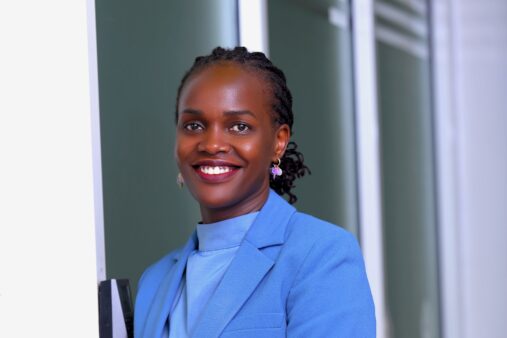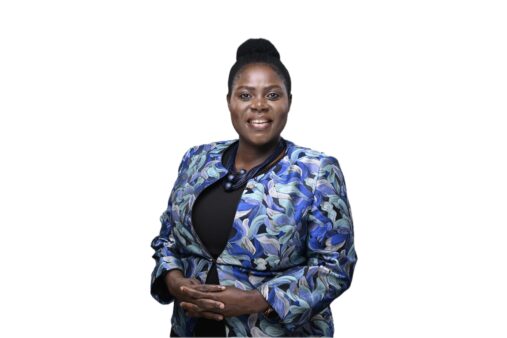Let’s start from where it all started. Tell us about your childhood, growing up and early working days.
My father’s dad Mr. Penn Blick was a British settler in Gomba, Central Uganda in the present day Gomba District. He had a coffee farm there. My mother’s dad, Captain Arthur Johnson had settled in Masaka District, where he married a Muganda lady. Therefore both my father, Mr. George William Blick and mother, Molly Johnson Blick were half Ugandan and half British. I was born in Fort Portal where my father was a district engineer for the Ministry of Works. My mother was a dressmaker/fashion designer.
So our mixed blood explains my skin colour, but I am Ugandan. I had two brothers before I was born and the interesting thing with my birth was that my parents really wanted a daughter. My mother went to Bwanda School where a certain Sister Kevina was known to pray for families to get children. She got on my father’s bike and went from Fort Portal to Masaka, then to Bwanda, and prayed for a daughter. I guess that’s how they got me. The good news is they never went trying for another girl so there are only boys following me. So, I was wanted but I was also enough just the one.
I went to Aga Khan Primary School, after which I went to Gayaza High School, for four years. The Headmistress advised that I would do better in a day school, so I went to Kololo Secondary School for my A-level. From there, I went to Makerere University Medical School for my Bachelor of Medicine and Bachelor of Surgery (MBChB). While in nursery school, my father told me that he wanted me to become a doctor, and I never questioned him. Although I never questioned it, I think parents should stop doing that to their children⏤ because in my case I could do arts and sciences, so I could have become anything else.
While in school⏤ in primary, secondary and university⏤ I did a lot of sports. Our sports teacher in Gayaza, Miss Ann Cutler, was very serious. She brought us the best coaches she could find in Uganda. She tried very hard to make sure that everybody had a sport- tennis, swimming, badminton, table tennis etc. We had very good teams in almost every sport.
So, I played tennis. Sports, for me, was very important as it opened up a world of opportunities and would in many ways save me. I got known in Uganda as the tennis champion, all the way up to Makerere. But sooner than later, I was forced to drop tennis because of the 07 a.m. – 08 p.m. lectures at Medical School. So I opted for table tennis. Again, I was able to do well and travelled quite a bit around the world. I owe a lot of my sporting background to being physically stronger than most people. I was also very competitive- I wanted to win in everything- in class and sports. You don’t want to be the last in your academics when you are excellent in sports or vice versa.
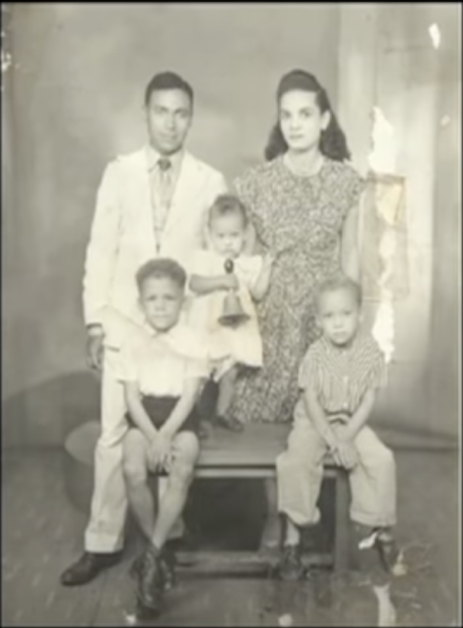
Sports also helped me in creating networks. People I played tennis with, then squash, would later go on to be big people in the country and all those were useful networks for me. I would like to encourage young people to be sports people or participate in any similar opportunities or clubs that have the potential to open up such large networking opportunities. Sports also helps with relieving stress and creates opportunities to travel and get exposure which is a good thing. I travelled quite a bit and I think international exposure is also a good thing. I attended the World University Games in Russia, on behalf of Makerere as well as the University Games in Ghana and of course we travelled a lot around East Africa. That was excellent exposure at that age. Not even my parents had travelled that far.
Which years was this for High School and University?
We are the class of 64 of Gayaza High School. Many of us are still around and we are very good friends. We have a Whatsapp group. They are my backup plan whenever I need advice or prayers. They are a great support system. Once you are a Gayaza girl, you will always get attention from the Gayaza family wherever you find them. No matter how young or old you are.
We did have what we used to call Social Evenings (Soshes amongst the new generation) with Kings College Buddo in my year while others went to St. Mary’s College Kisubi in another year. Gayaza High School was fun and I think it also gave you a sense of religious belonging. It gave you a chance to understand who is a good person and who is not. I think I would not have gotten that if I hadn’t gone to Gayaza.
My father was Anglican; my mother was catholic, so they preferred to drop us off at the swimming pool as they went to their various churches. Mum would go to Christ the King church and the other to Namirembe Cathedral. They didn’t want to quarrel about who was taking the children, so they would drop us at the pool or the Cinema. So the only way I was able to understand religion and the things of the Ten Commandments which are good principles in life, was at Gayaza High School. Gayaza also gave me a ‘pool’ of friends and sisters- as I didn’t have sisters at home. I only had four brothers.
What was life like after University?
Our immediate post-university days were bad because that is when we were going through Iddi Amin issues, then Obote 1, and Obote 2. I joined Makerere University, I think around 1971 when Iddi Amin was just coming in. I remember days after the coup he came to the University driving in a military Lnadrover- or was it a Jeep? We were all in the windows screaming and excited. You know, Obote was unpopular at the University. But the excitement sure didn’t last long enough. In 1972, he chased the Indians. You know, I had gone to Kololo Secondary School for my A-level, so I had a lot of Indian friends. Some of them had come with us to Medical School in Makerere. They all left in 1972, and soon the Europeans too left, because they were not feeling comfortable. They felt that after the Indians, they were next.
Because of my skin colour, we were nearly the only ‘Muzungus’ left. The little children would wave at us, shouting, “Bye muzungu”, but we remained rooted here. We were Ugandans anyway. There were those mixed-blood Ugandans who had British passports and were confused about their identity, but, I was always Ugandan. The whole of my nuclear family, my parents, and my brothers were all Ugandan. My brother went to a university in America, for three years and immediately after he finished he came running back because he could not relate to that culture. So, we are here and we are happy to be here.
Makerere University was so nice apart from Iddi Amin and the politics around it. But we had fun. We were young. We had friends. We were working hard and like many medical students, very busy. I had a motorcycle, and I would ride to Mulago and ride back with one of my friends at the back. There were three girls at the time riding motorcycles to Mulago Medical School. There was me, then there was Dr. Florence Oryem Ebanyat- she was the PS in the Ministry of Health until recently, and a third one, that I can’t quite recall.
Medical School was very tough. It was too much hard work. The first year was very shocking. Many of my friends couldn’t come to terms with dealing with and dissecting cadavers (dead bodies). Those who couldn’t stand it left.
Riding a motorcycle, besides being ungirly- must have put you beyond the reach of many boys at the University, as it made you look so rich!
When I finished my Senior Six, because I used to play tennis, and British American Tobacco (BAT U) used to sponsor tennis, they gave me a job to work as a receptionist and telephone operator. Me and my friend- were two tennis players. That is where I met my husband. At the time, he was the Assistant Chief Engineer and we started dating. So at Makerere, I was already dating, so I wasn’t looking at the little boys. But again, there was no way I was going to do anything beyond dating before I had delivered my father’s degree. No chance! So, I had to complete my six years at Medical School. We only got married after I finished.
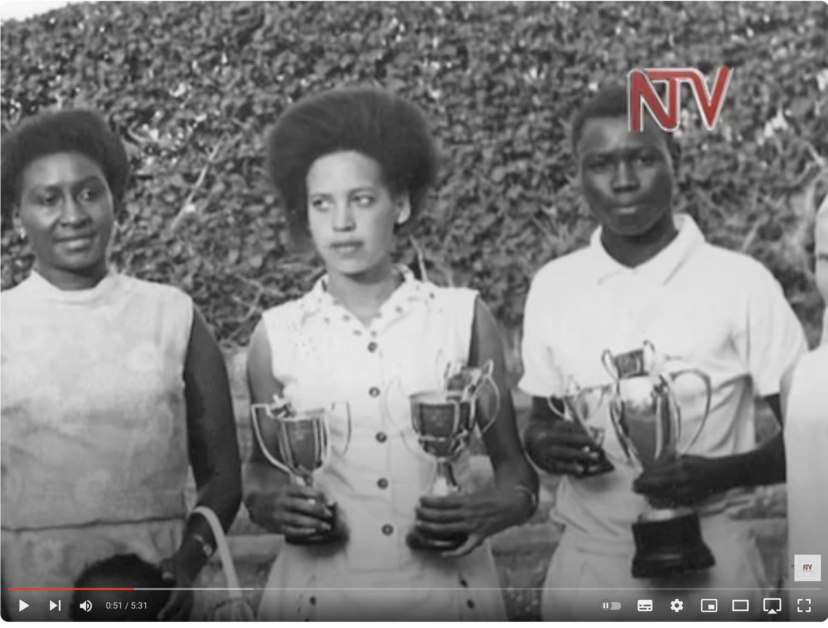
So yes, riding a motorcycle for a woman then was as shocking as it is today because you rarely see women riding. Safe Boda however encourages women to ride. I also know mothers who prefer to have their children ridden to school on motorcycle taxis (Boda Boda) by female riders, because they are generally careful.
I do understand your entire family has a riding spirit. Did you also succumb to it?
My father rode for quite a large part of his life, and my mother could ride too, until she bought a car a little later. Then my brother started riding early in life and I soon joined. My brothers started racing when they were quite young. If there was anything my mother would find money for, it was money for their racing. She was such fun of races and sports in general. She was their biggest fan. So, my brother started quite early and became champions early. So it was a family thing.
But my riding was more because I used to be late for my A-level classes at Kololo. We used to study in the 08 am – 01 pm session. I was always missing the first lesson, which was mathematics and it was not my strong point. Day scholars used to get an allowance from the Government. We used to call it boom. If I remember well, it was like UGX3,000 in S.5 and a similar amount in S.6. So I saved this money and my parents topped it up for me. I don’t know why they paid us. I never asked but I guess it is because those who were in boarding were fed and accommodated. Even my friends in Gayaza High School boarding never used to get it. But anyway, I was happy to get it and bought my bike. We used to stay in Bweyogerere. The buses were long and slow, and we would be late. But, after I got my bike, I never got late again.
Eventually, I got into racing. I didn’t particularly like racing, but my brothers were the champions here in Uganda. There were also some other champions such as someone called Dick Kaweesa and others. Several Kenyan and South African riders used to come here and there were female riders amongst them.
Motorcycle racing in Nakivubo Stadium was too hot, too dusty, and too noisy. I would ride, and compete, using my brother, Arthur’s bike which was number 99 (it has since been taken by his son, Arthur Blick Jnr). Whenever I used his bike to race (because mine was a smaller capacity), I would then turn the 99 to look 66- because he never wanted people to look at his number 99 and think he was slow. I would beat many of the women racers who came because I rode all the time and every day.
I can imagine, you couldn’t wait to get out of university and get married, especially since you had finished your “father’s degree” as you call it!
Upon finishing University, Idi Amin presided over our graduation⏤I remember how we used to make fun of his English. Later when I became the Chancellor of Nkumba University, his voice never left my head whenever I presided over graduation ceremonies. Immediately we finished, there were no internship problems Mulago Hospital and other hospitals took us on, especially the girls. Other interns went to Mbarara, Gulu and other hospitals.
Yes, we did get married but given the difficult days at the time, we had a very quiet one at the City Council. Besides, we were not show-offs. The ridiculous weddings that you see these days, were not even there at that time. But at least I put on a white dress.
By the time I was done with my internship, I was expecting our first son. By then my husband who by this time had left BAT and was working for Uganda Breweries had to run into exile. This must have been around 1976/77. At the time Uganda Breweries Limited used to produce beer for the army and then regular beer for the market. Both had different caps. Apparently, someone claimed that the brewery had made bad beer for the army, but luckily some government secretary warned my husband that they were coming for him, so he went off to Nairobi. You know what it meant if you were picked up those days.
Lucky for him, working for Uganda Breweries, which was part of a larger group, with branches everywhere, he was sent to Zambia as Chief Engineer. Thank God, by then he had already crossed from BAT to Uganda Breweries.
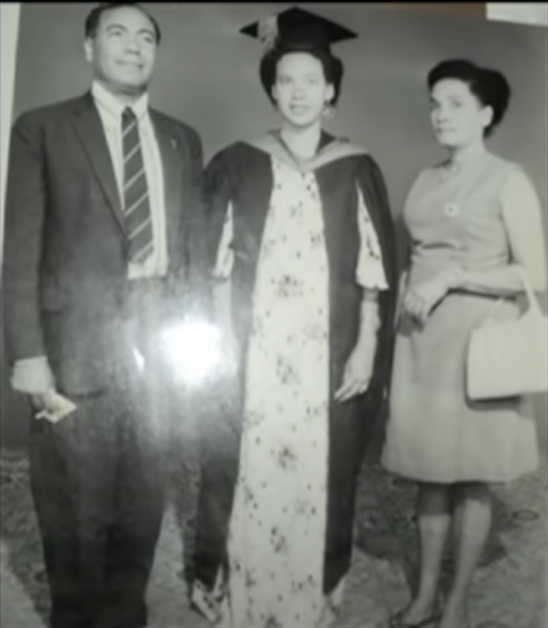
As soon as I finished my internship, I followed him. Crossing the Uganda-Kenya border at Busia was scary, because at the time, many doctors were leaving Uganda due to the political situation, and the government was a little more observant of who was going out.
It was even trickier because I had a child⏤Freddie Kigozi, but luckily for me, because I had been going up and down because of my tennis, frequently playing tennis in Nairobi, many people at the border knew me. In fact, some of them were relatives of some of the team members that I used to go with. But even then, I was still worried that this time, I had a child and a little bit more luggage, than usual. My fears were made worse that I was now a medical doctor and there was some sort of standing order by the president, not to allow any doctors out of the country. But when I got to the border, I made sure my tennis racket was somewhere where it was quite very visible. The immigration officials were more than happy to help me through. Everyone wanted to carry my child.
When I reached Zambia, again I was lucky that there was a shortage of doctors. Makerere at the time had a great reputation for training doctors and the Zambian medical school was still in its infancy. When I showed them my certificate from Makerere, they asked me where I wanted to work and I said, Ndola, where my husband already worked and just like that, I had a job. For the next three years, we settled in Zambia. I have a daughter born in Zambia.
When Idi Amin was overthrown, in 1979, Dan came back to Uganda and was offered a post as the first African Managing Director of Ugandan Breweries during the short-lived Yusuf Lule regime. But we stayed in Nairobi. I got a job at Kenyatta Hospital. Dan didn’t trust the political situation then, so he got us space in one of the Kenya Breweries guest houses. Navio Kigozi, our third born was born in Nairobi.

As soon as the UPC government took over in 1980, again my husband fled to Nairobi, after learning that he was to be picked up on trumped-up charges. Luckily, again, one of the secretaries in one of the offices where these plans were being hatched, tipped him off. His escape to Nairobi is another interesting story. We had a brother-in-law who used to work in Uganda Electricity Board (UEB) and at the time, UEB had some transmitters across the border and UEB engineers would go there often to check on them. To cross the border, they didn’t need passports or any identification documents. So my husband was assisted to ‘borrow’ a red UEB overall from the team and crossed over with some UEB engineers. He never went back. He just showed up in Nairobi. One evening I saw him arriving, in very dirty clothes and just a bag. Once again, Kenya Breweries stepped in and offered him a job and he stayed with us for the next 6 years, until Museveni took over power.
But while we were in Nairobi, I believe he worked with the external wing of the NRA. He would give them money and some medicine. There used to be a lot of medicine in our house. He had a very good friend in the NRA⏤Lt. Colonel Andrew Lutaaya, I think he is now a brigadier but retired. If you read President Museveni’s book⏤ Sowing the Mustard Seed, you can see when he visited our house in Nairobi. He came with Andrew Lutaaya over Lake Victoria. Andrew is an islander from the Ssese Islands, so he knew his way around water. During the 6 years, I saw many NRA fighters come into our home and go; even Paul Kagame, the current president of Rwanda came by.
I remember one time, my husband went to pick them up from Kisumu and the first thing they did when they entered the house was to shower. They were all of course very hungry too. We did what we could do and made them something to eat. I remember President Museveni appreciated the tea the most. They left the next day after breakfast. What they did after leaving our house, my husband probably knows best, because he tried very hard to keep this information away from the family. We rarely mentioned the name Museveni in our house, because the then Kenyan President, Moi, was not very friendly to the NRA at the time.
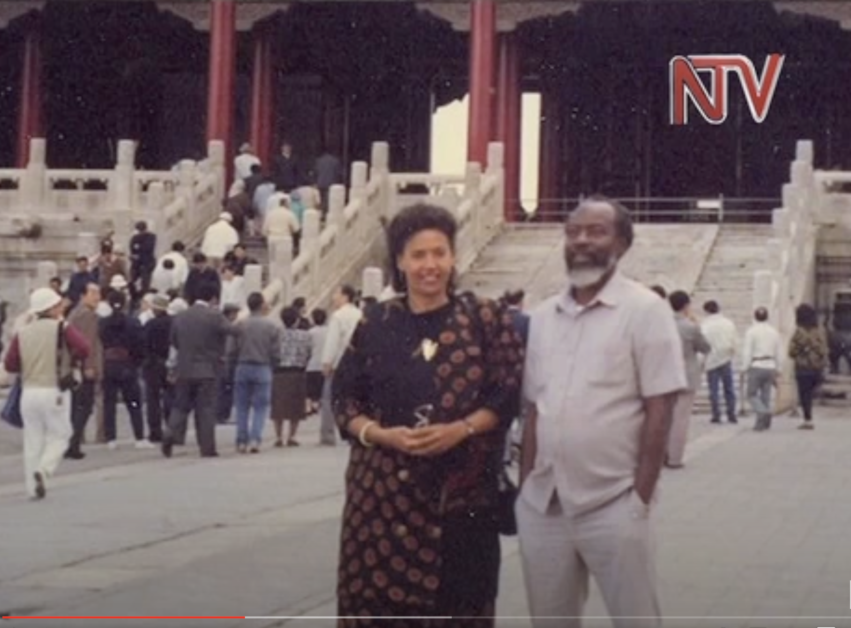
When Museveni took over power, in 1986, Dan was invited back to Uganda. In fact, he left early in January after NRA had captured Tooro in Western Uganda. He was asked to manage the Tooro region while the Salim Salehs crew continued towards Kampala. Dan was later appointed as the Minister of Works. Again Kenya Breweries was nice. We stayed in the guest house until the children had finished their school term. We came to Uganda, many months later. But we couldn’t find any good schools in Uganda. The schools at the time, left a lot to be desired. So we put the children to boarding school at St. Andrews Turi in Kenya because I too needed to work. I am not somebody who likes sitting at home. I got a job with the army as a parliamentary doctor at the army parliamentary clinic and would be there until 1994. Dr. Ben Mbonye headed the whole unit.
My husband would later stop being a minister, but he maintained his historical seat as a Member of Parliament. Hon. John Nasasira who had been his deputy became the full minister.
That was a rollercoaster of 10-15 years. With so much happening. How did you leave the Parliament clinic to join Pepsi?
The HIV/AIDs scourge that made a landfall in the late 80s, hit its peak in the early 1990s. That was the first time that I really questioned whether I should have gone into medicine as a profession. It was very discouraging because patients were dying every day and there was nothing to do about it. The medicine that was there couldn’t help because it wasn’t the right medicine for HIV/AIDS. At least today, we have the right medicine- although it can’t cure it completely, we can keep it under control. I watched most of the people I knew around us die. It was a hapless situation.
The 1994, disaster struck at the heart of our family. My husband had a heart attack and died in 1994, leaving me with our three kids. Around the time he left cabinet, the government of Uganda was privatising its Lake Victoria Bottling Company Limited (LVBC). Two businessmen, Amos Nzeyi and Chris Kayoboke, approached him to form a partnership to buy the bottler. He had a rich experience working for and running a bottling company and a beverage business which was critical for the partnership to win the franchise from Pepsi International and subsequently the bid to buy the company⏤ while the government owned LVBC, it did not own the franchise.
We collected and put the money together. I and My husband had made some savings. Those days it was easy to save at least a third of your salary. We had some money in our accounts in the UK. I don’t remember how much it was then, but everyone got shares based on how much money they had put in. But to cut the long story short, we won both the Pepsi franchise and the bid to buy LVBC. In fact, by the time we won the bid to buy LVBC, Amos already had the franchise from PepsiCo.
Luckily enough, Dan had left behind a will that gave everything he owned to the four of us-⏤I and our three kids.
I had to think fast. Decisions had to be made. At the Parliamentary Clinic, I was already having a hard time dealing with the HIV/AIDS scourge. It made me rethink my medical career. I, therefore, decided to go and try my hand at Pepsi. I went into Pepsi and told Amos and Chris, that I am here and ready to work full-time.
Amos and Chris were still majorly based in Nairobi. They hadn’t fully returned. They were in fact happy that there was now at least one set of eyes from the board working at the factory full-time⏤ never mind I was an ignorant board member.
The beginning was tough. One year later, after we had taken over, we had produced like one million crates. The business needed more money and we kept putting in more. In fact, at one time, I had to do something that if my husband (when he was alive) had tried to do it, I wouldn’t have let him⏤ I mortgaged our only house in Rubaga. But he was gone, and I was the one who needed the money. We had to because we needed to put in place a third line to meet the demand.
From a medical doctor to a fully-fledged business owner in a fast-moving consumer world. The transition must have been quite challenging. How did you manage business and family and fill in your husband’s shoes?
Pepsi-Cola International has always been with us, always looking out to find whatever we needed. After Dan’s death, there was a Pepsi guy from Ethiopia⏤ I think he was called Mena, who came in to take over. But from the look of things, he wasn’t too happy to see me.
He asked me a weird question⏤ “Do you mean I am going to have all the three wives of the company owners sitting here with me?”. But of course, Amos knew me, we played squash together. We were at the same club, and he knew that I could add some value.
I joined as the Head of Marketing, although I knew nothing about marketing. Amos joked that since I had a smile and was friendly, I could do marketing.
“You look like marketing, let’s do this,” he said.
But Chris being the usual careful guy, was like, “Can we afford her? Where is the money coming from? ”
That brings out the two key different but complementary traits between Amos and Chris. Amos is a very entrepreneurial risk taker, but Chris is the voice of reason; the risk manager. They are two very opposite people, so they needed Dan and subsequently me in the middle to make decisions. I believe this is one of the glues that has kept us together.
I recall our first board meeting, after the passing of my husband was very horrible. I knew nothing about cash flow statements, balance sheets and all. But I rose to the challenge. I pursued several marketing short courses at Makerere innovated by Professor Balunywa at the then Department of Commerce. At that time, there was no Makerere University Business School (MUBS). I did courses on entrepreneurship, marketing, customer care etc. I also did public relations at MTAC. By the next board meeting, I was a slightly different Maggie from the ignorant first.
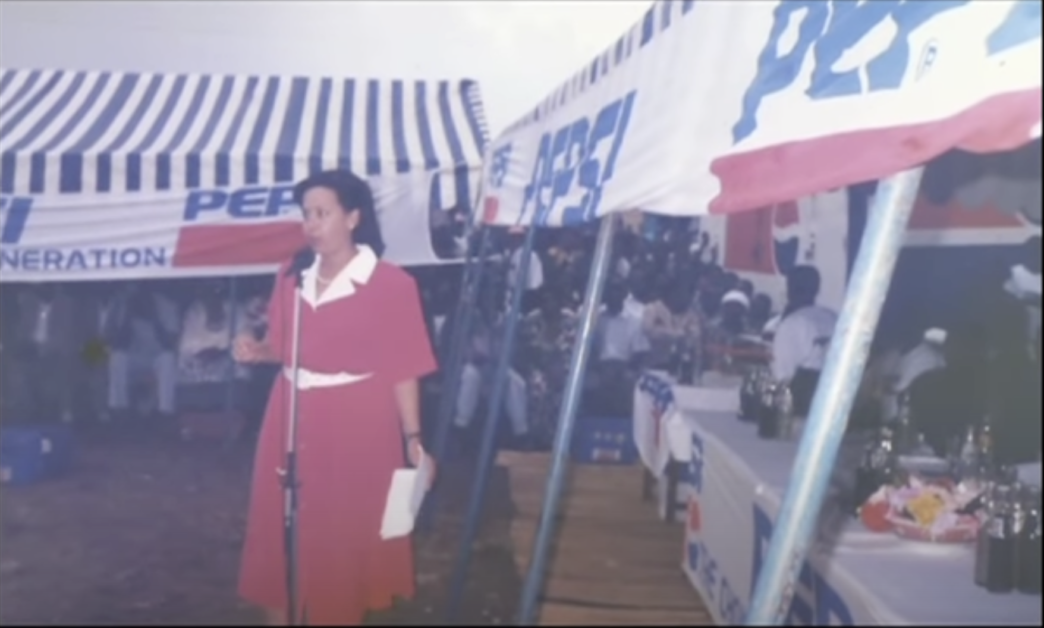
We started growing. We had in place a second bottling line and I remember President Museveni came to launch it.
Around this time, Coca-Cola came in powerfully after getting their South African partners, with beautiful red trucks, and beautiful new crates. Ours were rather old and shabby. So we really needed to find a solution to that. That is when we got partners⏤ International Pepsi Cola Bottling Investments (IPCBI) from South Africa who acquired 51% of the company. But this partnership was short-lived. They couldn’t handle it; they just made us worse and in March 2002, we bought back our company.
Is this the time that you had to mortgage the family house?
That must have been at the time we were installing the second line because we needed money and everyone had to contribute money based on their shareholding. I went to Housing Finance Bank and asked for some money to renovate my house, and instead used our contribution. Luckily enough, the Uganda Investment Authority used to pay gratuity every three years. The minute I got mine, I handed it to Housing Finance Bank and got my title back. You know how insecure a Ugandan feels when your house is in the bank.
To be honest, if Dan was still alive and had asked me for that house, to mortgage it in the bank⏤ because the house is in my name, I would not have given it to him.
Why wouldn’t you allow him to mortgage the house, and yet you easily did it? In fact, you are not alone, most wives would say and do the same, or do it begrudgingly. Relatedly, if a friend came to you seeking advice about their spouse wanting to mortgage their home for business, what advice would you give them?
I would look at it and see if the figures would be able to pay it back. I also had to measure the risk of us losing some of our shares because my two partners could probably find the money easily. The risk of having fewer shares drove me to that decision. But that was because, I could see the company was picking up, it was growing, and there was less risk of losing that house. I had also gotten a job at UIA, and I knew I had some salary and gratuity that could pay off the loan if the worst came to the worst.
What advice would I give? I don’t know because men do lose houses all the time and we as wives know it. We have seen it and families are left with no house, so I don’t know what advice because most women, don’t have access to the kind of detailed information and knowledge of the business that I had when I made the decision. The company was growing and we had great expectations. But as a wife without this information, it becomes hard to just surrender the home for your children.
At what point did you leave your marketing Director role to go into government and why did you abandon your business?
I didn’t abandon it. While I was at Pepsi I was also invited by the Late James Mulwana, to the Uganda Manufacturers Association (UMA) board. I did a lot of work on the board and learned a lot about business that I didn’t know before. I met a lot of business people, on the board such as Gordon Wavamunno, Max Rohrer, the founder of Roko, Aga Sekalala and many other powerful people. I learned a lot from them. I also learned a lot about corporate governance- that board members didn’t need to sit 24 hours, in the day-to-day jobs of the company. I came to appreciate that if we could get a good, and any marketing Director was better than me, I felt that it was time to leave.
At the time I left, we had gotten a new Managing Director, a one Ephraim Kubai, a former head of production and Finance Manager from Uganda Breweries Limited. He ran the company and we just came in for board meetings. That’s what board members should actually do. We didn’t need to be there day in and day out.
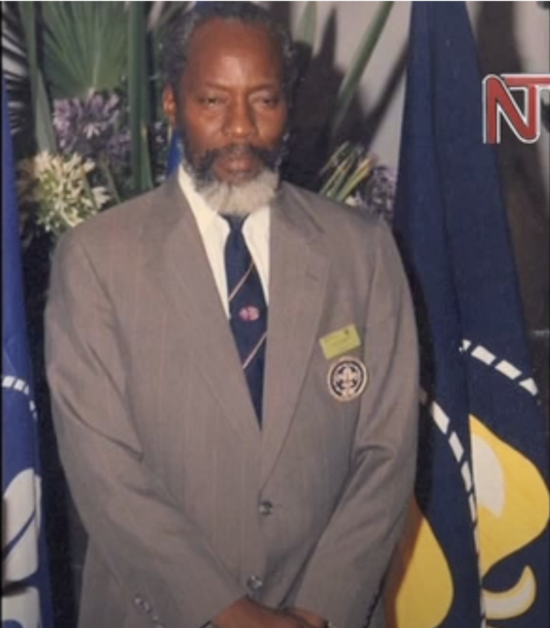
So I applied for the job of the Uganda Investment Authority (UIA) Executive Director which was up for grabs. They were looking for someone with private sector experience, and hardly any Ugandan had a combination of a University Degree and was in business at my level. At the time, most degree holders were largely employees and not entrepreneurs while others had run to the diaspora because of the bad political times. On top of that, I had learned a lot about advocacy and stakeholder engagement because I had been chairing the UMA subcommittee on businesses with various sectors. I learned a lot about taxation policy, the investment climate, investment planning etc.
I did the interviews and got the job, and I guess my networks were also useful because I understand when they went to show the president the list of the final candidates, he was quite happy with their choice (me). In fact, he still remembered the tea I served him in Nairobi!!
In my roles at UMA, I had been the one speaking to the government so even Honorable Sendawula, the then Minister of Finance, had been seeing me doing the work, so when my name appeared at his desk, he didn’t object. I had a very interesting team of experts at UIA with diverse experience. I think the first UIA Executive Director was from Rwanda, and then Yo Yobe Okello who formerly worked with the United Nations Industrial Development Organisation (UNIDO) came in for a year, so I was the third Executive Director.
UIA was another learning experience. There was a good team in place and I had quite a lot to learn from them and luckily enough, the donors were willing to train us. We hit the road running and learning. We did a lot of promoting Uganda around the world. I travelled a lot around the world promoting my country. I felt proud. It was a nice job.
How did you find the transition from the private sector to government? Did you get any culture shocks?
Not really, because I was the one at the top of the organisation, so I tried as much as possible to run it like a private sector organisation. The only challenge was when the funding didn’t come on time on time.
What would you say are some of your key achievements at the UIA⏤ things that you look back at and are proud of?
When I first joined, UIA, the UK, and the Netherlands were the top sources of investment to Uganda, but at the time I left, China and India were the new top sources of investment. A lot of work went into this, especially in promoting new areas of investment. We also got a lot of Ugandans at home and in the diaspora to invest.
In fact, by the time I left, Ugandans invested more than anyone else. Cumulatively, during my time, we had USD10 billion worth of local investment, and USD4 billion worth of international investment, but you can’t tell that to the Ugandans, they simply won’t believe you. We always want to underestimate ourselves, we want the negatives.
Promoting Uganda to Ugandans, especially in the diaspora is one thing I am proud of. A lot of Ugandans came back and invested here. Before that, most were not sure about the political situation and their safety. But we reassured them that this government had better things to do than persecute its citizens. Those who came and invested went back and convinced others that indeed Uganda was now different.
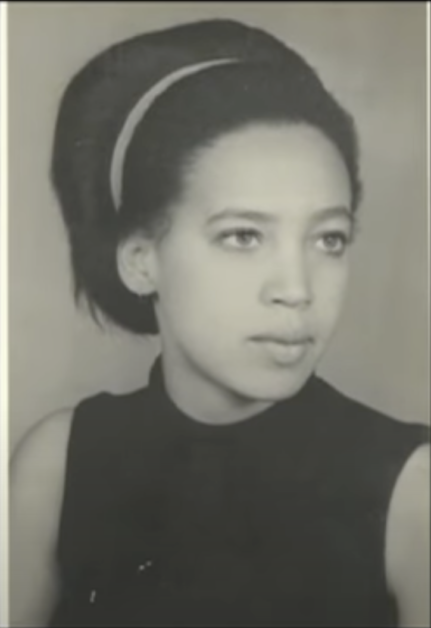
We came up with a big push strategy, we found the government had mainly three sectors⏤manufacturing, agriculture, and tourism. We added services such as ICT, creative industries, education etc. The education sector was largely government-funded, but right now 60% of it is private sector funded⏤be it universities, I think we have like 60 that are private, and then maybe 5 or 6 that are government, same as post-primary and tertiary education. That was a huge success.
We also attracted investments into the health sector, which was also originally government-dominated, but right now outside Mulago National Referral Hospital, most of the other big healthcare providers are private. We had Dr. Ben Mbonye setting up Nakasero, Dr. Kanyerezi setting up Kampala Hospital and Dr Ian Clarke of International Hospital Kampala. There are also several other mid-sized hospitals, clinics, and pharmacies everywhere. That has been successful.
The other one that we hadn’t tapped into when we started was petroleum (oil & gas), At that time petroleum was identified, and we worked on the opportunities not only on the petroleum itself but everything around it. We identified the opportunities, we promoted them. Unfortunately, the petroleum has taken so long, but now it looks as though it is on the way. Mining is another sector that is going to be very big, but our minerals are still underground. We are waiting to see if we can add value.
Then agriculture is booming in some sectors, the dairy sector is doing very well and our powdered milk is going to the Arab states, Nigeria and we have enough milk to send to Kenya. Our coffee is doing well. The challenge is still in manufacturing and value addition, largely because the amount of investment required is so big. But I know the government is trying to make some interventions there.
Having worked in government, at the senior level and now looking back from the outside, what would you say are some of the key lessons learned? What can be made better?
We need policies that work and don’t change frequently and are fair to everyone. That was one of the things that we had to work on. That was the intention of creating the Presidential Investors Roundtable⏤ where the president meets with investors, every 6 months to enable us to have the private sector input into policies, but also make sure that there is continuity and follow-ups all the way from the top. We still have a problem of failure to execute passed policies and as a result, the private sector feels agitated here and there. There are also some taxation issues. The private sector feels it is a little too much because not everyone is paying their share of tax. That’s the biggest problem. We need to widen the tax base.
We still have a lot of issues with our subsistence agriculture. We had a plan to have at least one big commercial agriculture investor in every neighbourhood and then other farmers around would to piggy bank or learn from them. The bigger farmers would also buy from them for processing and export. But this hasn’t happened.
I am doing the same at my Zuri Farms. I work with the community⏤ employ some of them, and share knowledge with them so that they can replicate this knowledge on their farms. We give them some high seeds as well. These smallholder farmers need to be assisted in getting access to agriculture extension workers. They need to be assisted to form cooperatives, SACCOs etc., so they can work together to reduce the cost of those of these inputs and services. I hope under the Parish Development Model (PDM) this can be fixed.
Stepping into your late husband’s shoes must have been such a big task. How easy or how hard did you find the whole experience, because a lot of family businesses do struggle when the husband passes on and the wife has to step in, because as shared earlier, sometimes, the wife doesn’t have all the information. Specifically addressing yourself to husbands running family businesses, what lessons did you draw from the entire experience that family businesses can benefit from?
One lesson is that my husband had left a will, and I am eternally grateful for that. It was, a very clear will, about who his children were⏤ not those DNA ones; what property he had and to whom it should go. In the will, he said everything he owned was for the four of us⏤ myself and the three children. Strangely enough, at the time, wills were not a common thing, especially for African families at the time⏤ may be because he used to fly a lot.
His brother knew where the will was in the house. He came and told me where it was. At first, I couldn’t find it, because he had too many briefcases. Having a will is something I would advise anybody at any age, especially one with a wife and children to have. Looking at what happens in Uganda over pieces of land, houses, and children is very critical for both males and females. We all have something that we own, and should therefore have a will, just in case. For me, that was a big help.
Even my walking into Pepsi and taking my place was made easy because of the will.
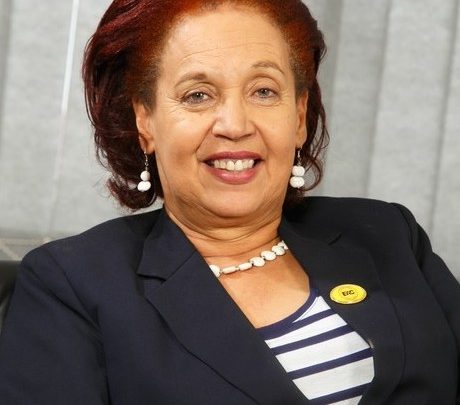
The other piece of advice is if your spouse is doing something, do show interest in it. Pay attention to whatever the other one is doing, as long as it is a business. You need to pay attention to it because you never know when it will be in your hands next.
Another lesson is to keep learning. It is never too late to learn. The lessons I got from Professor Balunywa and his team helped me a lot in my transition from a medical doctor to a Marketing Director and subsequently to a board director as well as at my Uganda Investment Authority Executive Director job. You don’t have to do an MBA or whatever but short-term courses, can be quite enough.
That is one of the other achievements at UIA- we trained a lot of the local investors. Many of them had the raw entrepreneurial energy and passion to succeed. So we brought in professionals, accountants, tax people etc. to talk to them, train them, give them information and today, they are great business people.
About partnerships, people have good stories, and others have bad stories⏤ from your experience of partnerships especially at Crown Beverages, what lessons have you learned in terms of how to make partnerships work?
Ugandans have challenges with partnerships. In fact at UIA, that was one of the challenges. Investors from Europe where they are used to partnerships, would come asking us to identify Ugandan partners, but Ugandans would shy away saying “Those whites will rob me”. They had seen it happen a few times, so it was hard to get partnerships off the ground.
In fact, I would say, that our partnership at Crown Beverages is one of the most successful ones at that scale.
But overall, partnerships work through being open. Perhaps the association with PepsiCo International also helped because there is a lot of reporting that we have to do⏤ they want to see your figures, in various aspects, so in that sense, we have sort of an oversight from Pepsi Cola International, which is helpful. Then of course we have put in place solid management.
I have also learned that being blunt and open with each other helps a lot. I love my Mukiga partner⏤ Amos Nzeyi. He is so blunt. If you ever get him to lie, by tomorrow he will have forgotten, and he will be back to the truth. That is the beauty of putting everything on the table. It is nice to hear it as it is, rather than sweetening the bitter truth, so as not to hurt feelings. It is nicer to know the truth. Good enough there are three of us, shareholders, so we discuss and agree to disagree. This culture of telling it as it is, we also picked from a British lawyer we worked with at the start; he had those skills of saying things the way they are and then we would have to realistically find a solution.
The other lesson is, Don’t Cheat. Don’t lie.
Then in family businesses, when the owner dies, if they haven’t left a solid will, that could easily disintegrate the family and the business. I think as business owners we need to seriously pay attention to succession planning. I think James Mulwana left a very good example that is working well. Aga Sekalala Snr is even doing better succession planning, while he is still alive. His son, who was originally managing a discotheque and radios, has eased himself into the chicken business and is fitting in well.
I know of a family in Mengo⏤ where the old man and his wife were running a hardware store. When he died, the two young boys came and sold everything and closed the store. I don’t know what they are doing now, but I just can’t get over those two boys, yet they were educated, boys. All they needed to do was to jazz up the shop and make it look cool and modern to use the business. I am sure the funds that educated those boys came from the shop.
For us, we each own 25% of everything, including my daughter who is now married and living outside Uganda. She is a doctor as well. Even though she is far, she gives us very brilliant advice. Navio and Freddie are part of the business and the farm. When we have a board meeting they all come, they are involved. All three, have children and we are trying to involve them in the family businesses, in one way or another.
There are a lot of us who look up to you as an inspiration. Who inspires or inspired you? Who do you look up to? What are the various pieces of advice that you have received from people that have enabled you to reach where you are?
I have had many, inspirations; those who inspired me to play tennis, our teachers, lecturers especially the Gayaza High School teachers⏤ my sports teachers, and the music teacher, made life bearable in a girl’s school which I was not used to.
Then in medical school, it was my lecturers and classmates.
Then, my husband, he was a cool guy. He was a cricketer and understood when I said I was going to play tennis, he didn’t fuss around. Then when I got to business, Mr. James Mulwana was the one who opened doors for me. I remember they were having elections at UMA. He came to me and told me there were no women in the UMA team. He was a gender-sensitive man. He called me and said they were going to elect the board, “Come and we elect you”.
Indeed I was elected to the board. They would not have elected me. When I got there, he had mobilised others like the Wavamunnos and that is how I got elected. Mr. Mulwana was an instrumental person in teaching me a lot and giving me opportunities. For example, there was a time when UMA had one slot to the Commonwealth meeting in the UK and he chose me. I got to represent UMA before I joined UIA. After that, I frequently represented UMA at various fora and this opened the world to me.
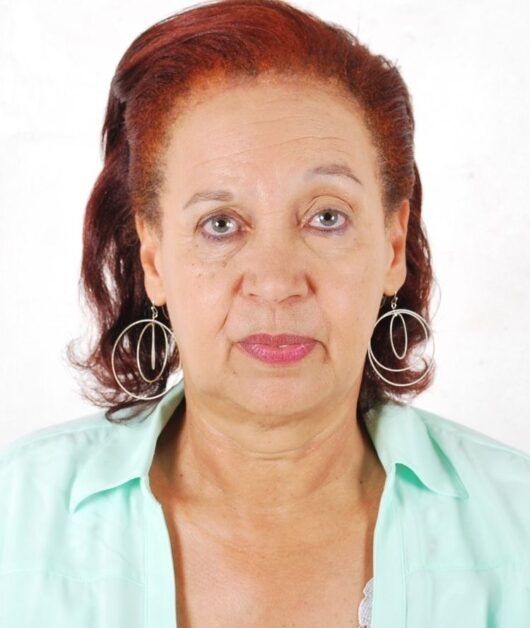
Another person who inspired me was President Museveni as far as investment was concerned, he has brilliant ideas, often they are not as well implemented as he would like, but he always had good reasons and good ideas.
I also got a lot of advice from the late Governor, Tumusiime Mutebile, and the late Keith Muhakanizi. Those two were very brilliant. They really understood the economy, and what needed to be done, what shouldn’t be done. I remember going on a foreign mission with Tumusiime Mutebile, with the World Bank to some meeting in Europe, and there was a World Bank guy, a senior officer, who came to me and asked to be introduced to Mutebile. He wanted to learn more about the Poverty Eradication Plan.
That Poverty Eradication Plan, they designed was just so impressive and was copied by Kenya, Botswana and all these other countries. It came out of Mutebile and some six young boys at the Ministry of Finance. Even if it didn’t work out well, it was a brilliant plan. The challenge was in the implementation.
So after leaving UIA, apart from Crown Beverages, how do you spend your days?
Pepsi as I said, I am a board member, and I attend board meetings. I have fairly frequent ones when they have some issues.
But I am now mainly a farmer. I grow coffee, I have chicken and mangoes, and I grow a lot of food. When I saw people during COVID-19 begging for food from the president, and yet they had land, I went back and told my manager, don’t leave an inch of land, put sweet potatoes, cassava, Irish potatoes, and so many, let’s grow food. Let’s feed Ugandans, so we feed them with chicken, food but the main crop is coffee, we have mangoes, and when they ripen, we are looking at value addition. Now even on the coffee, we want to add value, but we have been just farming. We had to learn by ourselves, we have not been great farmers.
I am trying to reduce the number of boards I sit on. I just retired from Trademark Africa, retired from Shell Foundation, and am retiring from another two. Then I have the Makerere University Endowment Fund where we are trying to mobilise all Makerereans to support the university, on research, scholarships etc. Our major focus is especially on having more women in the sciences. We are also fundraising for a student centre to replace the old guild canteen- where students can play indoor sports, read their books and whatever they are trying to do with the internet and all that. So, the student centre is a big one we are pushing for.
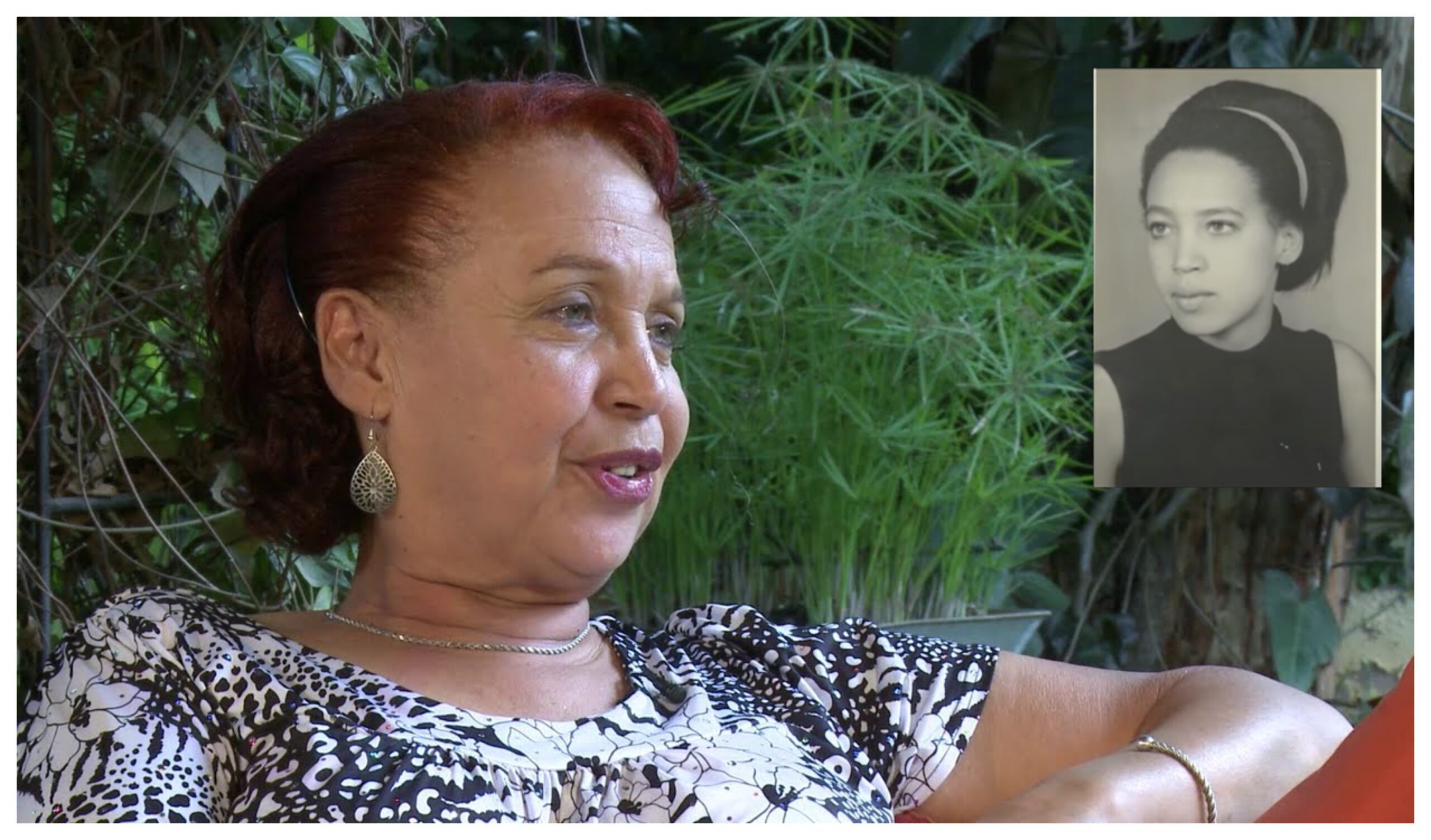
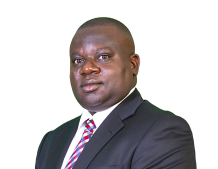 Redefining the CFO Role in Oil and Gas: Inside How UNOC’s Emmanuel Mugagga Is Executing Strategy for National Impact
Redefining the CFO Role in Oil and Gas: Inside How UNOC’s Emmanuel Mugagga Is Executing Strategy for National Impact